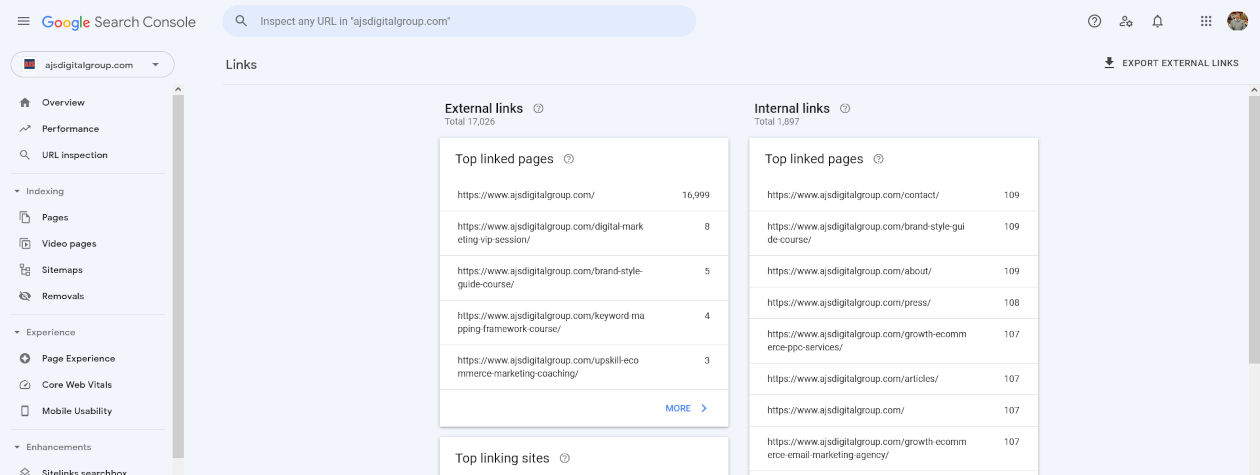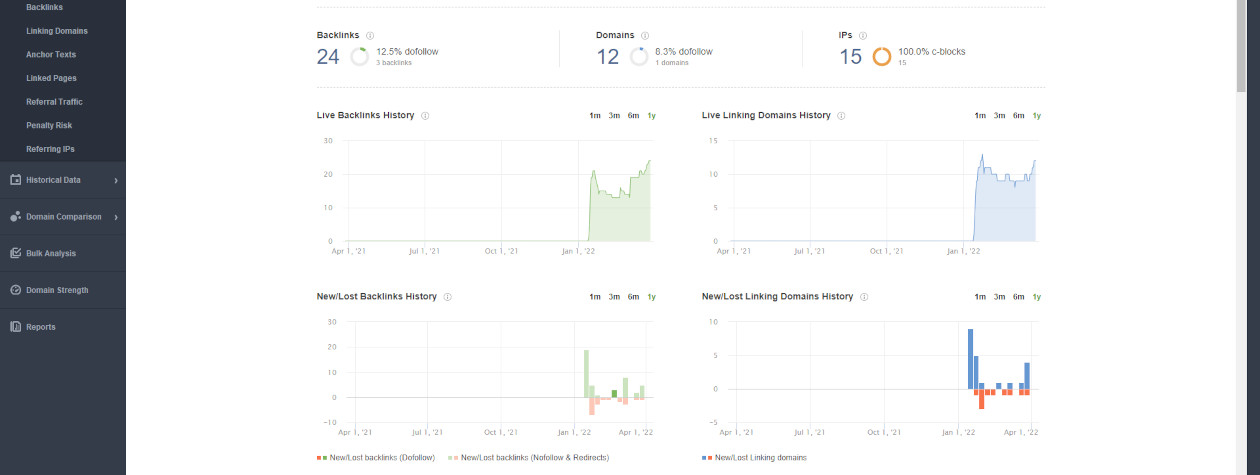If you study the basics of SEO for ecommerce brands, you’ll see two main themes: Content and Backlinks. We’ve focused on content so far. But if you want to appear in the search results, you need other websites to link to you. But how can you build backlinks for ecommerce websites?
Even with killer content, a fast-loading website, and a few enticing call-to-actions (CTAs), you’ll still need some backlinks to encourage Google and other search engines to display your ecommerce store on the first page of the search results.
There’s much mystery, half-truths, and bad advice on the internet about backlinks and building them. So if you’re confused or feeling slightly cautious, this guide is for you.
You’ll learn what a backlink is, why you need them, how many you need, and where to find them. Getting backlinks for your ecommerce brand shouldn’t be difficult, especially as you can’t rank without backlinks!
What Is A Backlink?
A backlink is when one website links to another unrelated website. Adding a link from one page on your website to another is called an internal link.
With both types of links, we can use an image or text as the linking element. For example, if I send you to look at BBC news. You’ll automatically click on the underlined text that is the link. This text (or lack of it) is known as the anchor.
External links to other websites should always open in a new window, encouraging the reader to stay on your website and finish the article. Whereas internal links don’t need to open in a new window.
That’s really as complex as you need to go. Don’t be put off if you see lots of technical talk about dofollow, nofollow, sponsored, DA, DR, Trust Flow, etc. As a growing ecommerce business, you don’t need to worry too much about these.
Why Are Backlinks Important?
When deciding where to place a webpage in the results, Google, Bing, and other search engines use hundreds of factors. Google, for example, uses over 200 different factors to evaluate the quality of a website.
Over the years, some factors have become more important, including loading speed and author authority. And others have diminished in importance. However, backlinks have remained a major ranking factor.
Search engines see backlinks as votes. The more votes your website has, the more trustworthy it must be. You might say, it’s a popularity contest! Hence, you need backlinks for your ecommerce website to show up in the search results.
Over the years, search engines have got smarter and now look at the relevancy of links over quantity. For example, if you run an ecommerce business selling car parts and have loads of backlinks from shady-looking Russian websites, Google will ignore these or might even punish you.

Are There Any Rules To Follow?
Google webmaster guidelines explicitly states that asking for or creating backlinks to your own website is against their terms of use.
If you’re confused at this point, don’t worry. We all are.
Here’s the issue. Back in the early days of SEO, around 2000, people figured out that backlinks were important to rank in Google and Bing. So they went crazy and built as many backlinks as possible, including many from really shady websites. Hey, a backlink is a backlink!
The search engines quickly moved away from quantity to quality. By discouraging webmasters from building or asking for links, Google believes that they will focus on creating a better experience for every visitor to their website, and so will earn backlinks.
In reality, we can’t rank any website without backlinks. So you must be proactive. Yes, this is against Google’s guidelines. However, many, myself included, interpret the guidelines as don’t build a ton of spammy or low-quality links to your website.
By focusing on earning and creating relevant high-quality backlinks to your ecommerce website, you’ll do well. We’ll jump into a few tactics shortly to help you earn links.
How Many Backlinks Does Your Ecommerce Store Need?
If the suggestion that you should be building backlinks on top of your other marketing activities drives you crazy, don’t worry. It’s simpler than you think.
What stops many ecommerce founders and marketers from building backlinks is a lack of a solid process. If you see building links as simple maths, you’re more likely to do the activity.
Ask for a backlink each day. Aim to land a new one per week.
If you can get more backlinks each week, then great. But don’t lose perspective and focus only on getting more and more backlinks. After you get a few quality backlinks, you’ll notice more websites will start to link to you, meaning you can do less.

Google Search Console
5 Tips For Building Backlinks For Ecommerce Brands
If you don’t know where to start building backlinks for your ecommerce brand, here are my top ideas and tips. Again, the aim is to ask for a backlink per day.
We need a list of potential websites that might link back to you. Here are 5 ideas for you to try:
- Press
- Cross-promote other businesses
- Contact bloggers or influencers
- Social media
- Google My Business.
#1 Local and national press/magazines
In terms of digital PR, getting some for your business is an art. You’ll need to talk to editors and writers at related magazines and publications. Offer to write for them or submit quotes when they need them.
Start by creating a list of magazines, papers, and publications you want to feature in. Next, plan how you’ll get their attention. Remember writers and editors get 100s of emails each day, so think of an inventive way to stand out.
Also, many publications have a small business directory you can join. So it’s worth signing up for that as well.
#2 Cross-promote other businesses
Swapping links or blogs with another business is a great way to build natural backlinks without much effort. Look for businesses with some overlap.
For example, if you’re a high-end wine ecommerce business, writing a blog on a luxury kitchen retailer’s website is a great idea.
#3 Contact bloggers or influencers
These folks get a ton of emails asking for links each day. So you’ll either need to find a unique angle or pay them. Ideally, build long-term relationships that are mutually beneficial. And don’t just blindly send pitch after pitch!
#4 Google Business Profile
Every business should have an up-to-date Google Business Profile. It’s free and a great way to build your digital profile.
#5 Social media
Having active social media profiles is great for building trust with users and search engines. But pick wisely and keep them up-to-date. It’s worth creating profiles on Facebook, Twitter, Instagram, and Pinterest.
What To Pitch When Using Cold Email
I could write a couple of thousand words on how NOT to pitch using cold email outreach. It’s a topic, we will cover in detail. I get a few of these sorts of emails daily.
As you’re emailing someone you don’t know and might not be interested in what you’re offering, there are a few things to be mindful of.
You could go for the quick pitch without any fluff. For example, “I’m contacting you as I’d like to exchange blog posts and feel we can each benefit.” or “I’d like to buy a link on this post URL.“
Another option is to strike up a conversation and then make your ask on the 2nd or 3rd email. Doing this takes more effort but will lead to better results, particularly if you aim to build long-term relationships.
Whatever approach you take, don’t lie – none of this “I’ve been reading your blog for years” or pasting random URLs into the email. Make the email copy about them not you.
If your cold email uses I or We more than twice, you need to rewrite it. Again, think about what you’re offering them and how you can make it attractive to them, NOT you!

photo by SEO Powersuite
Is there an easy way to check backlinks?
Without tracking your efforts, you’re wasting time. Each month check who links to you and what pages the backlink point to. There are several ways to check your backlinks, with free and paid options available.
You could use the basic backlink checker in Google Search Console. It displays a list of who links to you and what page. For most small ecommerce businesses, this is plenty. You could sign up for Ahrefs.com Webmaster tools, as this gives you a more comprehensive report for free.
You could use a paid tool such as SEO SpyGlass by SEO Powersuite or Ahrefs.com, which are designed for SEO professionals.
Can your ecommerce store rank without backlinks?
No. Your ecommerce store won’t appear at the top of the search results without backlinks. However, you don’t need loads of links, and after a while, you’ll start to pick up backlinks naturally without any work.
Ideally, ask for one link a day. And aim to create a new backlink per week. Once a month, spend a couple of minutes tracking your backlinks.
By building some backlinks, your rankings will improve. As your website is more visible across the search results, you’ll see a jump in traffic and revenue.
Need a partner who can design your rocket-fuel ecommerce growth strategies and supervise their execution?







